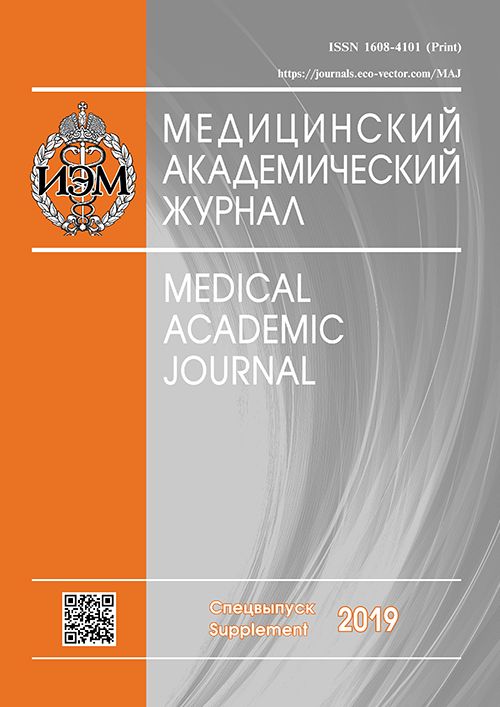PROTEASOME MECHANISMS OF THE DEVELOPMENT OF TOLERANCE TO ALLOGRAFT IN WISTAR AND AUGUST RATS WITH DIFFERENT CONTENT OF MONOAMINES IN THE BRAIN
- Authors: Astakhova TM1, Karpova Y.D1, Bozhok GA2, Alabedal’karim NM2, Lyupina Y.V1, Legach EI2, Sharova NP1
-
Affiliations:
- Koltzov Institute of Developmental Biology, Russian Academy of Sciences
- Institute of Problems of Cryobiology and Cryomedicine, National Academy of Sciences of Ukraine
- Issue: Vol 19, No 1S (2019)
- Pages: 39-41
- Section: Articles
- Published: 15.12.2019
- URL: https://journals.eco-vector.com/MAJ/article/view/19314
- ID: 19314
Cite item
Abstract
Full Text
About the authors
T M Astakhova
Koltzov Institute of Developmental Biology, Russian Academy of Sciences
Ya D Karpova
Koltzov Institute of Developmental Biology, Russian Academy of Sciences
G A Bozhok
Institute of Problems of Cryobiology and Cryomedicine, National Academy of Sciences of Ukraine
N M Alabedal’karim
Institute of Problems of Cryobiology and Cryomedicine, National Academy of Sciences of Ukraine
Yu V Lyupina
Koltzov Institute of Developmental Biology, Russian Academy of Sciences
E I Legach
Institute of Problems of Cryobiology and Cryomedicine, National Academy of Sciences of Ukraine
N P Sharova
Koltzov Institute of Developmental Biology, Russian Academy of Sciences
References
- Karpova YaD, Bozhok GA, Alabedal’karim NM, et al. Proteasomes and transplantology: Current state of the problem and the search for promising trends. Biology Bulletin. 2017;44(3):237-244.
- Karpova YaD, Bozhok GA, Lyupina YuV, et al. Changes in the proteasome function after Induction of donor-specific tolerance in rats with ovarian allograft. Biology Bulletin. 2012;39(3):244-249.
- Erokhov PA, Lyupina YuV, Radchenko AS, et al. Detection of active proteasome structures in brain extracts: Proteasome features of August rat brain with violations in monoamine metabolism. Oncotarget. 2017;8:70941-70957.
Supplementary files







